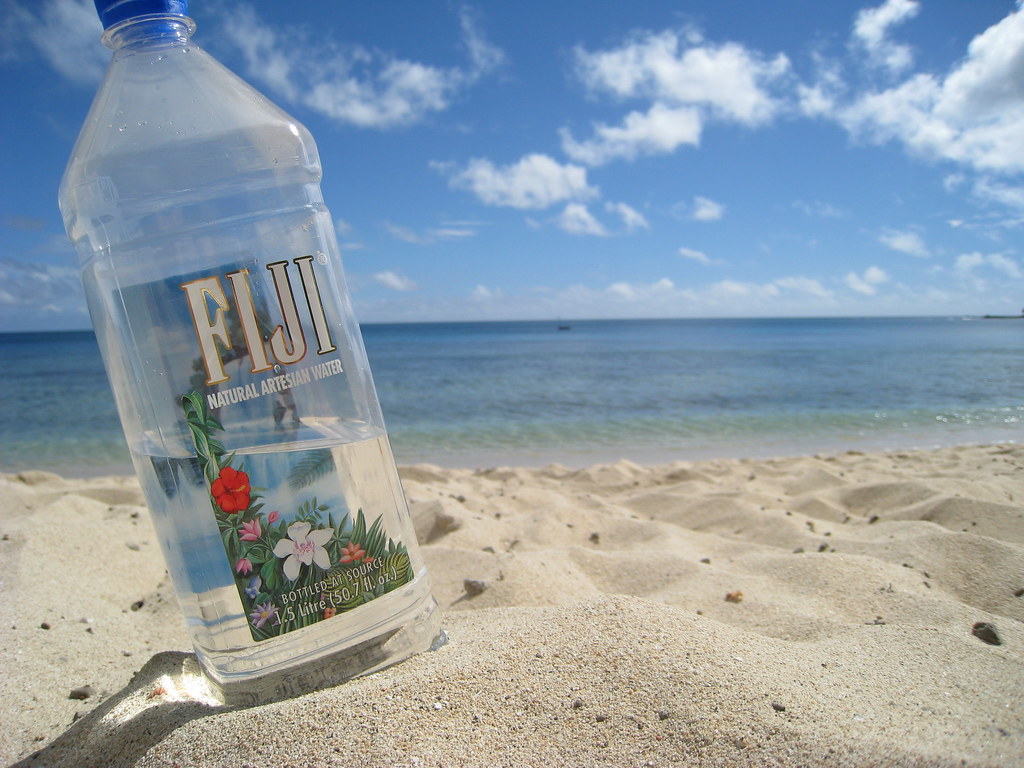FIJI Water bottles, which feature an iconic square shape and vibrant branding, are now made from 100 percent recycled plastic and are also fully recyclable. FIJI Water rolled out the 100 percent recycled polyethylene terephthalate (rPET) bottles this year that replaced its virgin rPET 500-milliliter and 330-milliliter bottles throughout the US.
“In our transition to recycled plastic, our intention is to make a truly meaningful and lasting environmental impact,” said Clarence Chia, senior vice president of marketing at FIJI Water, in a press release. “We are using recycled plastic to breathe new life into existing materials, while maintaining FIJI Water’s same great taste, look and quality that consumers come to expect from Earth’s Finest Water.”
While speaking at the launch of the brand’s recycled bottles in Yaqara, Fiji in April, Minister for Economy, Aiyaz Sayed-Khaiyum said this initiative directly supports the Fijian Government’s commitment to modernizing the economy through sustainable measures. He added that it contributes to Fiji’s overall commitment to reducing its carbon footprint and building climate resilience.
Prior to the broader sustainable packaging movement, tensions were high between FIJI Water and the country from which it gets its name. The company’s economic power was such that in 2010, it threatened to close its factory. As HuffPost reported, rather than allowing the government to increase the tax on its bottled waters from a third of a Fiji cent to fifteen Fiji cents, it made the daunting threat.
Related: Scientists Unveil Biodegradable, Antibacterial Food Packaging
Now, FIJI Water committed to continue shifting its entire portfolio of bottle sizes to rPET by 2025. But its bottles aren’t the only thing on the sustainability agenda. The company said it is seriously looking to replace its reliability on fossil fuel with either sonar or fuel cells and is also looking at making its packing more sustainable.
Still, the water business in Fiji has brought some dissent. While the export of mineral water added more than $100 million to the country’s economy, Fast Company pointed to the tension of a modern factory churning out bottles of water in a country in which many citizens don’t have access to drinking water. Not to mention, the brand is owned by a California couple who purchased the enterprise in 2004.
Despite the tensions, FIJI Water maintains a strong hold in the American market compared to other bottled water brands, netting $150 million in annual sales out of an industry worth $15 billion. Soured from the island of Viti Levu in Fiji’s Yaqara Valley, the water is labeled artesian, which means it comes from an underground chamber of rock known as an aquifer, which is essentially a natural filter.
Thanks to effective marketing and claims that bottled water is healthier, cleaner and fresher than tap water, brands like FIJI Water continue to be sold and command a hefty price. In spite of the objectification of bottling and selling water, FIJI Water said it has many initiatives to address sustainability and is committed to finding solutions, starting with fully recycled water bottles.












Join or login to leave a comment
JOIN LOGIN